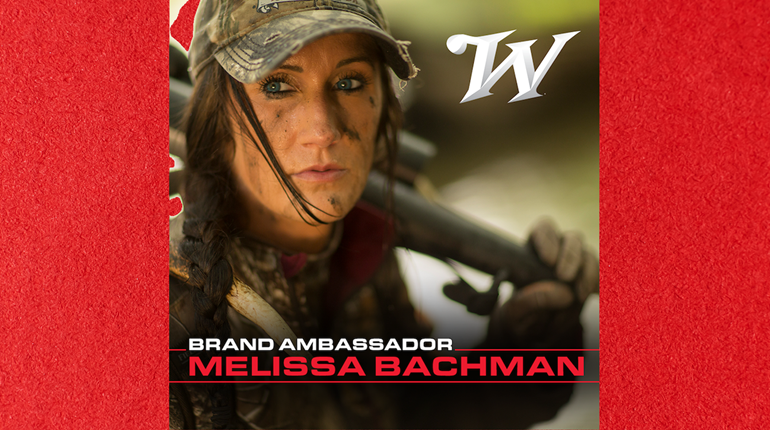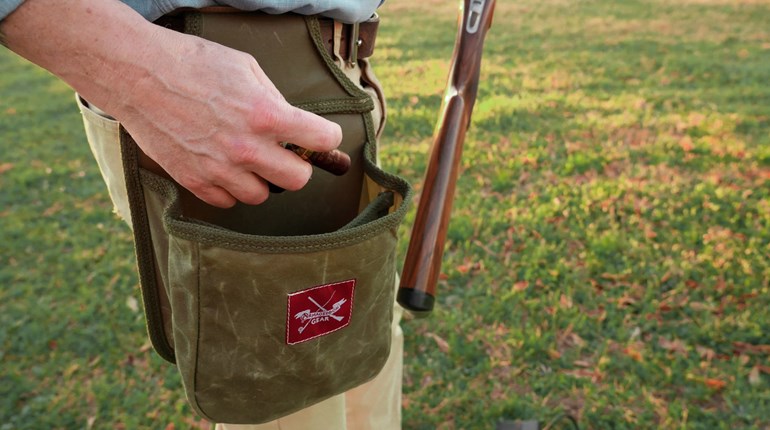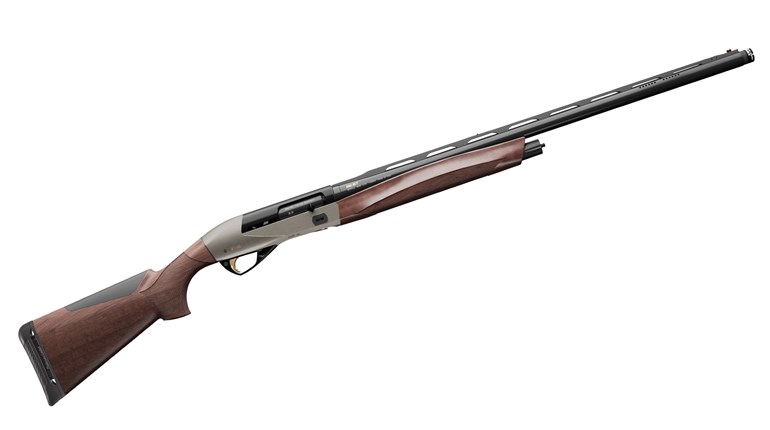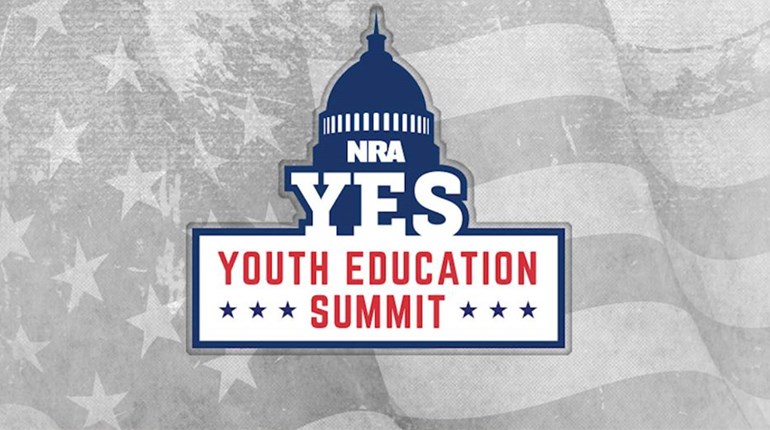
Growing up in central Minnesota, I had a love for the outdoors from a very early age. My parents were both avid hunters, and luckily, they involved my younger brother and me every chance they had. They took us hunting, fishing and trapping, while teaching us about conservation, which gave us a real appreciation for everything in nature. I grew up in a small town out in the country and always understood where my food came from. I helped in the garden, hunting and processing animals and, of course, learned to cook it all.
I attended college and earned a double major in TV Broadcasting and Spanish. My goal was to find a job in the outdoor industry, but that task proved to be much harder than expected. I sent out more than 70 resume reels and all were rejected. I worked hard as an honors student, but now every company had the same response: You need experience.
I decided there was only one way to get experience, and that was to work for free. I went back through the list of places to where I sent my resume and picked out the number one company I wanted to work for: North American Hunting Club. I called them back to explain that I was willing to work for free and could do anything from shoot to edit to sweep floors or log tape. Whatever was needed, I just wanted to get my foot in the door. Very quickly I learned that people don’t turn down free labor and I started working there the very next day. I drove 150 miles a day to work for free, then held a second job just to pay the bills.
However, my hard work paid off and after four months I was hired on full-time for the original job I had applied for. Never wanting to commute that distance again, I moved into an apartment complex next door to the office and began my career as a full-time producer. I didn’t have the money to rent a single room apartment so I moved in with a girl I had never met who was also looking to share costs.

For the next four years, I worked extremely hard to improve my skills as an editor and videographer. I had some of the best co-workers anyone could ask for: Terry, Phred, Jeff, Brad, Lonnie, Brian … they helped me immensely. My fellow producers took the time to go over my work, explain ways I could improve and provided the guidance I needed. I traveled almost non-stop and worked tirelessly to become better and better. I can honestly say that every single episode I produced was the very best I could do. I gave each and every one of them my all. Now I look back and think, boy there was a lot of room for improvement, but at the time it was my very best work and I was proud of myself. None of this was on-camera work; it was all behind the scenes. There, I learned the steps to produce an outdoor TV show from start to finish. I filmed hunts, fishing trips and tournaments, tips and short how-to videos, really anything that was needed. Some people were amazing to work with; others taught me how to have a thick skin, but I’m appreciative of it all.
Of course, my dream job was to someday be in front of the camera, but I knew learning every aspect of creating a show would prove beneficial in the future. In order to get my foot in the door as an on-camera host, I came up with a plan. For every 30 days straight I worked, they would give me a few days compensatory time. I put these comp days together and would do a hunt on my own with the camera gear I purchased. Once I completed the hunt, I would edit the entire show and wait for an opening in the schedule. I then offered up my completed show for free and got the exposure I needed on TV. This is how I created my first on-camera opportunity, and I kept repeating the process, over and over. I was constantly looking for tasks others didn’t like to do, like our archery tip segment, and offered to do them all. I was looking for exposure and willing to do any amount of work needed to get it.

Luckily, a few manufacturers started noticing my hunts and asked about that camera girl named Melissa. Mathews Archery was coming out with a new women’s bow at the time called “the Jewel” and called to see if I could help with the release! I remember being up all night worrying about the shoot, but now I look back and see some wonderful ladies that have become my good friends. In the beginning, it was extremely intimidating to do a shoot while I was still just running cameras.

While I was still a full-time cameraman, I had some luck come my way. I was filming a trip in Africa, and another industry guy, Steve Johnson, gave me his kudu tag in a camp in Nambia. I was able to harvest a stunning kudu on the trip. It is something I will never forget, and the experience gave me credibility in the industry. It was all very spontaneous. My group grabbed my camera, threw a rifle in my hand and said, “He’s yours!” I dropped the bull in his tracks and that smile never left my face. That fall I hunted hard every spare moment and was able to harvest a 202” whitetail in Illinois after a pack of coyotes chased it to me. I got all of it on video, and I started gathering enough content in my free time to launch my own show. It was a slow pace for gathering footage, but all of my spare time was devoted to filming quality content and bagging trophy animals.
After I had accumulated plenty of footage for my first season and understood every step of creating outdoor television, I decided to break away and create my own production company. I settled on the name Deadly Passion with the help of Carrie Lapka. She helped me come up with an entire list of options, but hunting was my passion. I do wish I still had that list as it would be interesting to see what the other options were, but Deadly Passion was a perfect fit.
The next step was securing airtime. I still remember how I felt signing the paperwork to get my show on Sportsman Channel. I had no idea if I’d be able to sell sponsorships, but I knew if I didn’t have an airtime spot for my show to air, nobody would be interested. As collateral I listed my newly purchased townhome and truck. This is what I call extreme motivation. I was literally risking everything just for a chance to make it on TV. In the beginning, many of my hunts were self-filmed. Not because I wanted to, but I simply didn’t have the money to hire a cameraman for every hunt.

During my second season there were several big hunts that were just too difficult to film on my own. To get the money to hire a cameraman, I cashed in my entire retirement savings to fund that fall. This proved to be one of the best investments I could have made, an investment into myself. This allowed me to hire a professional cameraman, Martin Teeter, who I still use to this day. I am thankful for all his time and hard work over the years. It’s not always easy, especially when you’re not the one hunting. Long days, short nights and brutal weather can make hunts extremely tough, but Martin has always been right there capturing the best footage.
Everyone needs someone in the beginning to help them with decisions, and maybe avoid some easy mistakes. For me, that person was Tom Miranda. I met him at a Mathews Archery photoshoot and we became instant friends. He was a seasoned host, cameraman, editor, producer and production company owner. He did it all and was a perfect person to ask questions, learn from and go to for guidance. Tom was always willing to help out, give advice and even gave me camera work once I was out on my own; plus, he introduced me to my cameraman and editor. Mentors are important in every career, but I got lucky finding someone who did everything I aspired to do and was willing to help me through those early years.
Early on I realized the importance of having good public relations and industry connections. I teamed up with Michelle Scheuermann from Bullet Proof Communications to help me with press releases and get my name out there. I have worked closely with her since day one and she has really helped mold the success of my show and my brand. We became best friends and Michelle was even the maid of honor in my wedding!
With airtime secured, the next step was to secure sponsors. I had zero background in sales, and had no idea what I was doing or what I should charge. I just showed people what I had done, explained my drive and promised people they would get way more than they expected if given a chance. Winchester was the first company to jump on board and signed up as the title sponsor in my first year. I couldn’t be prouder to still have them as my title sponsor 12 years later; Winchester Deadly Passion was my dream and they helped make it a reality.

My approach to sponsors was instead of telling them what I could do, I showed them what I had done. This proved effective and I was able to sign enough to make it through year one. This didn’t mean I was profitable; I just didn’t go completely broke. I used my production skills on the side to do as much extra freelance work as possible. I would still film other people’s hunts, edit videos and commercials, write articles and blogs and basically bring in any additional income I could find. I rarely turned down work, and still don’t. As a freelancer, you never know when work will be there or when it won’t, so you find a way to make time. I believe it took around six or seven years to get out of the red, but I was dedicated.
Over the last decade, I’ve learned to adapt for a wide variety of changes. I still air my TV show Winchester Deadly Passion on Sportsman Channel four times a week year-round, but I also showcase my footage on a variety of places online. Social media has most definitely changed the way deliverables are met with sponsors but I’m a firm believer in learning to adapt and make the most of it. Rarely do I change sponsors, and that is something of which I have always been super proud. My show is all about showcasing the fun and excitement of the outdoors, and hopefully inspiring others to get outside and hunt. I’ve also found a huge love for doing trade shows and speaking engagements. I’m a people person and absolutely love going across the country, meeting people and spreading a positive message in the hunting community.

To this day I book every appearance, flight and hunt, and negotiate every contract. I write every article, post on social media and put in the long hours driving across the country from hunts to speaking engagements to trade shows. I finish every episode of Winchester Deadly Passion and submit it to the network. Over the years I have become much more efficient with managing my time. In the beginning I had to do every single aspect because I didn’t have any money to hire help.
Now I try to do all the things only I can do, but have others who are experts in different areas help where possible. This allows me to have a little more time at home with my family, keeping that healthy balance and less time constantly working. For example, I no longer edit every hunt, I only finish all the shows. Years ago, I started working with Dave Voisey of Hidden Thickett Productions and his editing and story telling skills were second to none. I decided my time is better spent doing things only I can do and he does an incredible job telling the stories and capturing the adventure of my hunts. They always say you should surround yourself with the best, and I’m convinced I have found those people.
In the end, having a hunting TV show has been a dream come true. I had so many people tell me it was impossible, and there were many times I even doubted myself. However, I never gave up and never quit until the job was complete, regardless of how tired I felt. One time I fell asleep while walking on an elk hunt because I had been up all night editing an upcoming episode. Obviously, that way of life couldn’t go on forever but I did what I had to do to get where I am today.

I have a beautiful family with four kids and a supportive husband. Some of my focus and work-life balance has shifted. I no longer work 100-hour weeks, but I’m thankful for all those years I did. It’s the only way to learn true efficiency; every mistake was a lesson learned. I travel much less than before but I still spend a lot of time on the road, and without my amazing support system it would never be possible.
One of my favorite sayings is, “Success is never owned. It’s rented and rent is due every day.” This is true regardless of what your dream is; you can never let up. The best advice I can give to others trying to make it in the outdoors industry is commit to outworking everyone else and the success will eventually come. It may take a while but all good things do!















































